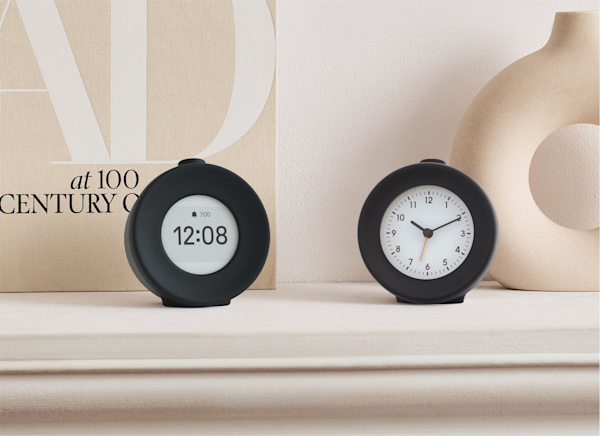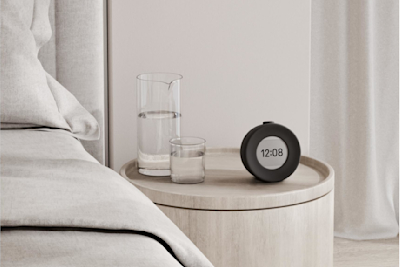
Embracing Simplicity in Today's Tech-Driven World
Designing for Simplicity and Why Less is More
"Simplicity is the ultimate sophistication," wrote Leonardo da Vinci in 1452. This timeless wisdom seems increasingly distant in today's world, where our lives are inundated with gadgets and gizmos brimming with features that promise more, however, often deliver frustration.
From smartphones with over a thousand settings to cars with intricate touchscreens, simplicity in design has taken a backseat to the allure of "featuritis." This term, describing the relentless addition of features to products, has become the bane of modern technology, leaving consumers yearning for a return to straightforward, user-friendly design.
The Lure of Endless Features
Yes, the allure of more features is a powerful force. Faced with a choice between a toothbrush that does two things and one that boasts five, most consumers will instinctively reach for the latter. Because, why not? More features is better than less, right?
Consequently, this inclination fuels manufacturers' relentless quest to outdo each other in feature-packed product offers. However, as David Pogue, an American technology and science writer, highlights in his exploration of simplicity in a complicated world, this arms race often leads to products that are overwhelming and counterintuitive.
New York Times columnist David Pogue takes aim at technology's worst interface-design offenders, and provides encouraging examples of products that get it right.
Dr. Jakob Nielsen, a Danish design consultant, underscores that true simplicity is challenging to achieve. It requires not only talent but also a deep understanding of user needs and behaviors.
Yet, the market's insatiable appetite for more has led to a proliferation of complex products. Microsoft Word, with its thousands of commands, is a prime example. Even Jon Friedman, Microsoft's chief of design, acknowledges the difficulty in balancing power and simplicity.
Tech Titans and the Simplicity Struggle
When we look at the tech sector, efforts to streamline user experiences sometimes come with significant challenges. For instance, early attempts by some companies to introduce user-friendly interfaces and tools did not always achieve the desired reception. Simplified tools meant to make user interactions more straightforward, such as minimalistic writing programs (Who remembers Microsoft’s Write) or helpful desktop assistants (Who’s old enough to have met Clippy?), sometimes fell short of user expectations due to their limited functionality or intrusive design.
However, there's a growing recognition among tech companies of the intrinsic value that simplicity brings to technology. Despite the hurdles faced in the past, an increasing number of companies are embracing simplicity as a core principle of their product design and development. For some, who are paving the way, like Mudita, this commitment to simplicity involves selecting the most straightforward solution that effectively solves the user's problem. This approach is paving the way for technologies that not only meet users' needs in a more efficient and user-friendly manner but also enhance overall user satisfaction by making technology more accessible and easy to navigate.
Truth is ever to be found in simplicity, and not in the multiplicity and confusion of things. ~ Sir Isaac Newton
Mudita and Our Approach to Minimalism
Amidst this technological tumult, we believe Mudita stands out by championing simplicity and minimalism in design. Guided by three core principles—neutrality and simplicity, non-attention-grabbing aesthetics, and non-interference with daily life—Mudita's products are a refreshing departure from the complexity that plagues modern gadgets.
By focusing on these principles, Mudita aims to help individuals enjoy more of life offline and in the present moment.
Our commitment to minimalism is not just about reducing never-ending features; it's about enhancing user experience by removing unnecessary distractions. This approach aligns with the growing desire for products that integrate seamlessly into our lives rather than dominating them.
In a world where every device demands our attention, Mudita's designs, like our mindful alarm clocks, Mudita Bell and Mudita Harmony, offer a serene alternative that prioritizes functionality and ease of use.
Mudita Harmony and Mudita Bell in Pebble Gray
The Future of Simplicity in Design
As we navigate an increasingly complex technological landscape, the words of Leonardo da Vinci resonate more than ever. Simplicity is not merely a design choice; it is the key to creating functional, user-friendly products that enhance rather than complicate our lives.
As Mudita, we believe we are leading the way, demonstrating that less can indeed be more.
The challenge for designers and manufacturers is to resist the temptation of "featuritis" and focus on what truly matters: creating products that serve their users effectively and intuitively. By embracing simplicity and minimalism, we can reclaim the sophistication that da Vinci so eloquently championed and build a future where technology enriches our lives without overwhelming them.
Related stories

Why an E Ink Alarm Clock Is the Best Mother’s Day Gift
This Mother's Day, gift better sleep with an elegant E Ink alarm clock, like Mudita Harmony, featuring nature sounds for restful nights and gentle mornings.

Mudita Kompakt wins Red Dot Award 2025 in Product Design
Mudita Kompakt wins the Red Dot Award 2025, its second major design honor. Shipping begins soon, with Global and North American versions on the way .

How to Get a Better Tech-Life Balance
Learn practical strategies to reduce screen time & achieve tech-life balance through actionable tips for digital wellness & create healthier technology habits.
If you'd like to receive the best stories from our blog, keep up to date with our progress and get notified about our product releases and special discounts.